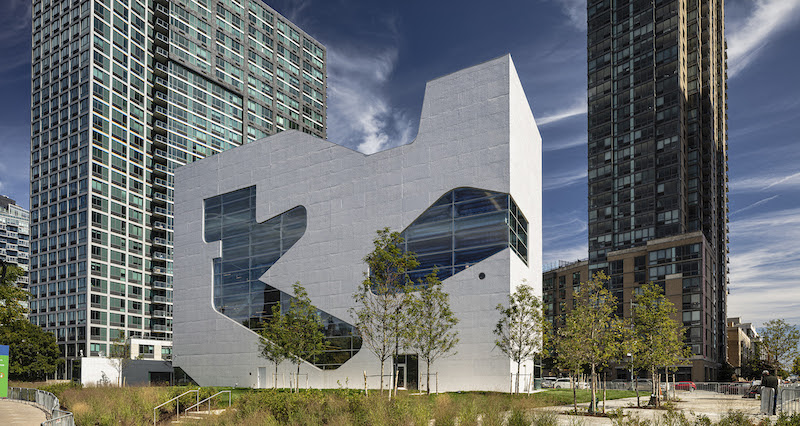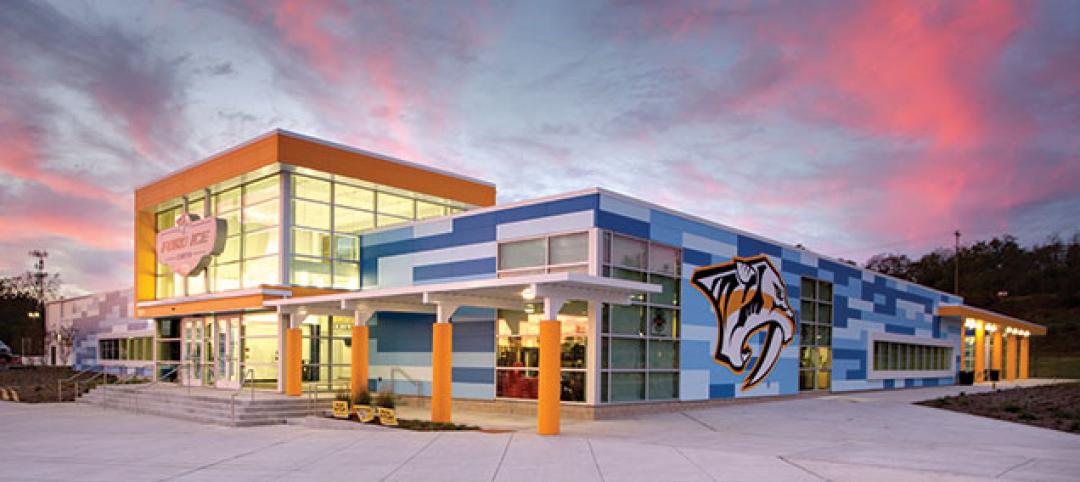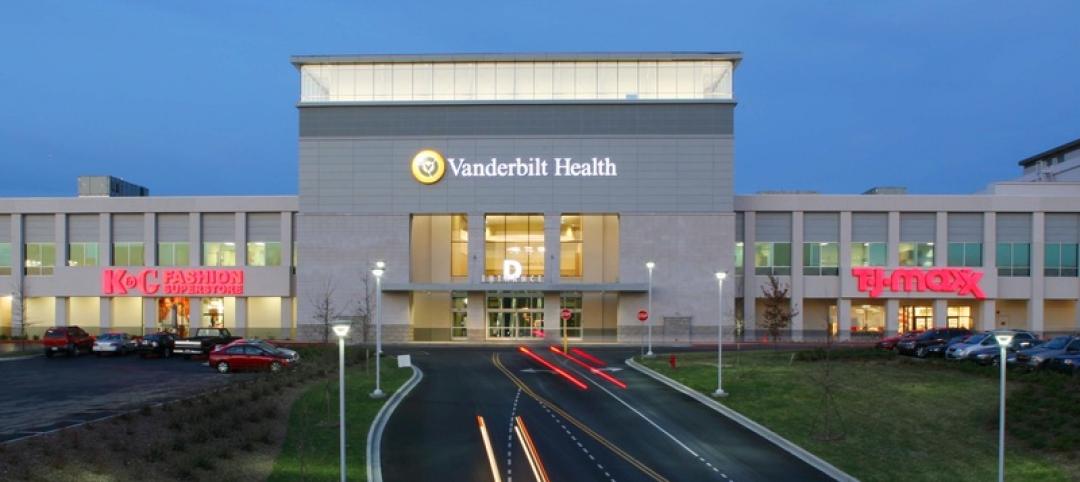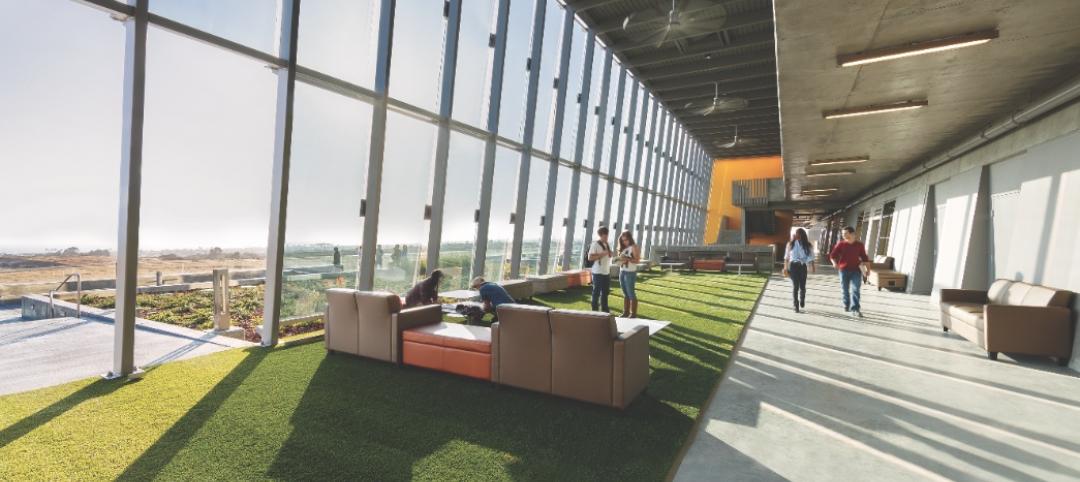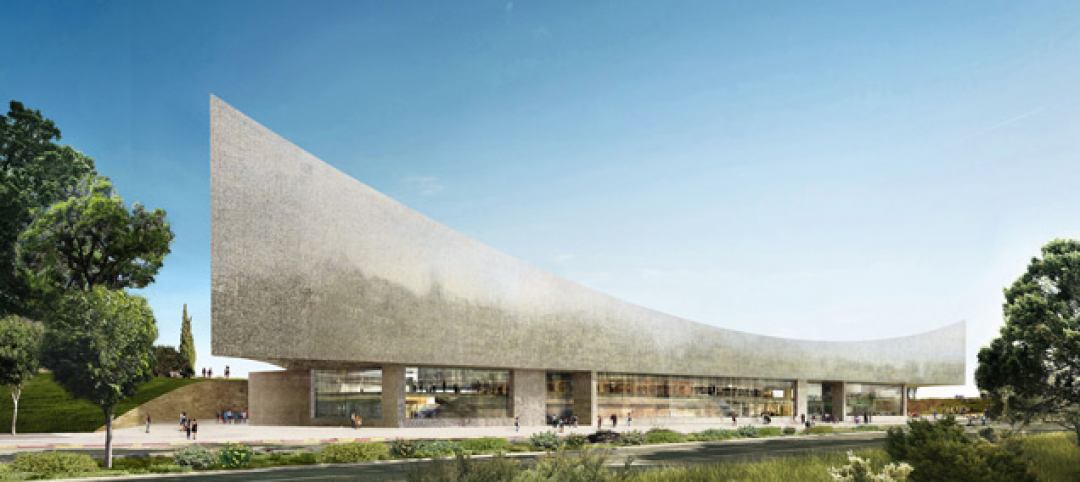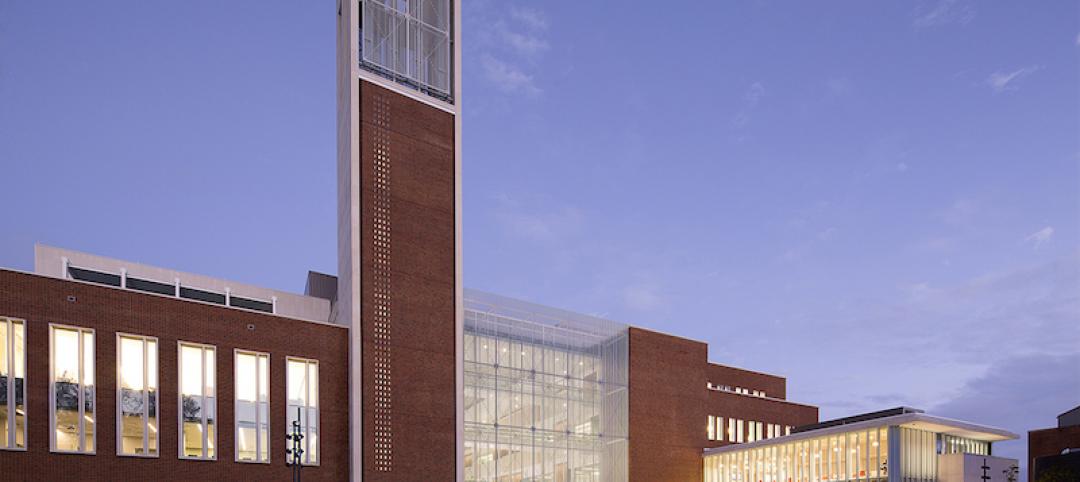The recently opened Queens Public Library at Hunters Point forgoes the recent trend of incorporating libraries into high-end residential towers and instead opts to stand independently on its 32,000 sf site along the East River.
Designed by Steven Holl Architects, the Hunters Point Library’s facade consists of exposed concrete and painted aluminum stamped with large amorphous windows to let in natural light. The glazed cuts in the facade also provide users with views towards the river and the city as they move up a series of bookshelf flanked stairs.
 © Steven Holl Architects
© Steven Holl Architects
The building’s interior uses bamboo as a building material to create a warm, inviting social space for the community. The children’s area, teen area, and adult area can be clearly seen from the exterior of the building in the cuts of the east face of the building; there is one facade opening for each area, but inside the programmatic divisions are fluid. The building section is open and flowing to allow for the most energy-efficient design and the greatest amount of public green space on the site.
 © Paul Warchol.
© Paul Warchol.
There are also two reading gardens on site: one on the east entrance side of the building that is bordered by a low park office pavilion, and one on the building’s roof that offers panoramic views of the city.
The Hunters Point Library is located at 47-40 Center Boulevard in Long Island City, N.Y. and is open Monday through Saturday.
Related Stories
Sponsored | Cladding and Facade Systems | Mar 24, 2015
Designers turn a struggling mall into a hub of learning and recreation
Architects help Nashville government transform a struggling mall into a new community space.
Retail Centers | Mar 10, 2015
Retrofit projects give dying malls new purpose
Approximately one-third of the country’s 1,200 enclosed malls are dead or dying. The good news is that a sizable portion of that building stock is being repurposed.
| Jan 2, 2015
Construction put in place enjoyed healthy gains in 2014
Construction consultant FMI foresees—with some caveats—continuing growth in the office, lodging, and manufacturing sectors. But funding uncertainties raise red flags in education and healthcare.
| Dec 29, 2014
Spherical reflectors help spread daylight throughout a college library in Portland, Ore. [BD+C's 2014 Great Solutions Report]
The 40,000-sf library is equipped with four “cones of light,” spherical reflectors made from extruded aluminum that distribute daylight from the library’s third floor to illuminate the second. The innovation was named a 2014 Great Solution by the editors of Building Design+Construction.
| Dec 28, 2014
AIA course: Enhancing interior comfort while improving overall building efficacy
Providing more comfortable conditions to building occupants has become a top priority in today’s interior designs. This course is worth 1.0 AIA LU/HSW.
| Nov 10, 2014
Herzog & De Meuron unveils plan for National Library of Israel
The library’s new home will be a completely new building in Jerusalem, and will combine the functions of a central research center, a venue for indoor and outdoor cultural and educational activities, and a place for digital experience.
| Oct 16, 2014
Report: How to keep public libraries relevant in a digital age
Public libraries will avoid being relegated to the scrap heap of history in a digital age as long as they continue to serve as platforms for learning, creativity, and innovation that strengthen their communities, according to a new Aspen Institute report.
| Oct 16, 2014
Perkins+Will white paper examines alternatives to flame retardant building materials
The white paper includes a list of 193 flame retardants, including 29 discovered in building and household products, 50 found in the indoor environment, and 33 in human blood, milk, and tissues.
| Oct 15, 2014
Harvard launches ‘design-centric’ center for green buildings and cities
The impetus behind Harvard's Center for Green Buildings and Cities is what the design school’s dean, Mohsen Mostafavi, describes as a “rapidly urbanizing global economy,” in which cities are building new structures “on a massive scale.”
| Oct 12, 2014
AIA 2030 commitment: Five years on, are we any closer to net-zero?
This year marks the fifth anniversary of the American Institute of Architects’ effort to have architecture firms voluntarily pledge net-zero energy design for all their buildings by 2030.


